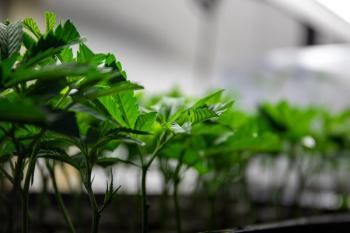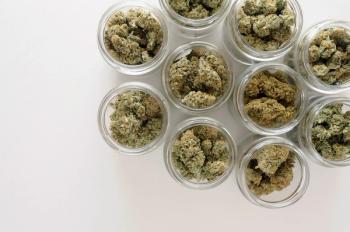
New Technology Captures Cannabis Strains in a Pill

Cannabis strains may have just been given the fast track to a pharmaceutical version (pill form) that captures the entire strain specific effects through the use of a device termed the lossless activation chamber Y (LACY). Zeyead Gharib, the cofounder, CEO, and lead chemist of Harvest Direct Enterprises, recently spoke to us about the LACY device, which won first place at the MJBizCon Battlefield, and the impact he’s expecting it will have in the cannabis industry, specifically the medicinal side.
Your company, Harvest Direct Enterprises, has developed a manufacturing method that lets you capture an entire cannabis strain in a pill using your lossless activation chamber Y (LACY) device. What led to the development of this method and how did you determine that there was a need for it in the cannabis industry?
We developed this method to solve a major problem in the industry: Traditional methods of activation and infusion degrade the cannabis plant profile. Prior to this development, nobody else in the history of cannabis or medicine had been able to make truly strain-specific, nonsmoked medicinal cannabis products. And why is that? The simple heating that is used in traditional activation and infusion methods degrades and purges the molecules that contribute to that strain’s specific effects (the entourage effect). Meaning that the specific medicinal properties of thousands of cannabis strains out there were lost during traditional activation and infusion. That loss was unacceptable to us. For patients, it was necessary that someone develop a way to capture and activate the full plant profile in a pill, inhaler, or topical-and our company, Harvest Direct Enterprises, was up to the challenge.
LACY is a decarboxylation device. Can you please tell us how that device is designed to work with cannabis?
The LACY device is able to activate and infuse cannabis with no loss or shift in the original plant profile we started with. This makes it the first system truly capable of making strain specific pills, inhalers, and topicals. Converting cannabis into a truly full spectrum, discreet, safe, consistent, and stigma-free form. This means that doctors will be OK with prescribing it, pharmacists will be OK dispensing it, and patients will be free to medicate discreetly and effectively.
How does the LACY method differ from other strain-specific extraction techniques?
LACY focuses on lossless activation, rather than just extraction. Lossless activation is what won us first place at the MjBizCon Innovation Battlefield in New Orleans, Louisiana. It’s what we can do that no one else can. Lossless activation is activating cannabinoids without degrading or purging the original plant profile. This means we can activate and infuse cannabis while maintaining the specific entourage effect of a specific strain-and that has never been done before.
What kind of impact do you anticipate LACY will have in the cannabis community?
LACY will absolutely and totally revolutionize the cannabis industry and the medical industry. In about 5 years-when it has full proliferation in the global cannabis market-targeted cannabis profiles will replace half or more of all of the current medications in use. That’s how far reaching and disruptive (in a good way) this technology will be. The biggest beneficiaries will be patients who will finally be able to consume the entire plant profile without smoking or vaping it, truly making cannabis a respected medicine while maintaining its holistic and natural properties (the entourage effect).
Can LACY capture specific strain information in any other forms aside from pills (for example, edibles, oils, topicals)?
Yes! LACY is a launching point; from there we can go into any product imaginable. We have already created the pill, and our next focus for research and development is the inhaler and topicals. We think the inhaler will be particularly revolutionary. Imagine a strain-specific inhaler that delivers the same effects as smoking within 30 seconds. We personally, cannot wait.
Newsletter
Unlock the latest breakthroughs in cannabis science—subscribe now to get expert insights, research, and industry updates delivered to your inbox.




